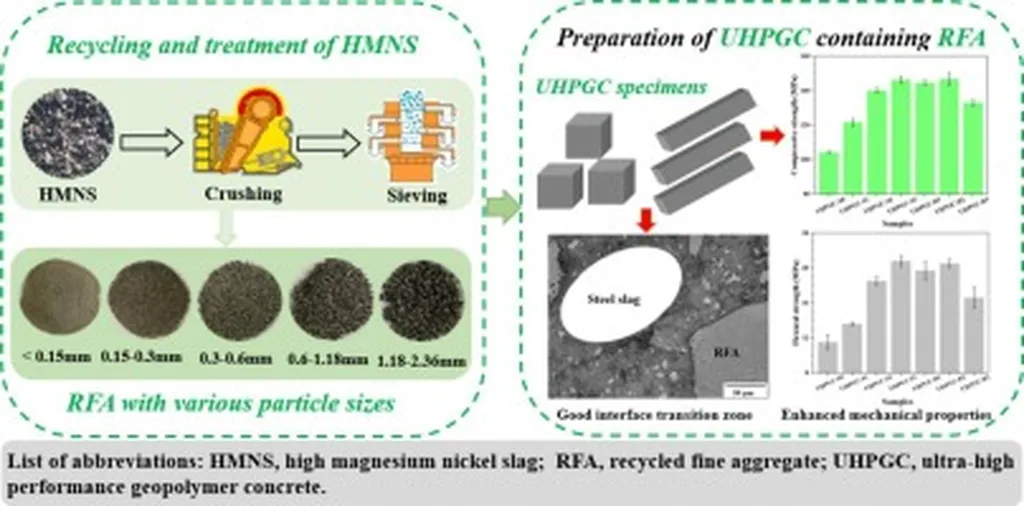In the quest for sustainable construction materials, researchers have made a significant stride by enhancing the performance of geopolymer concrete—a eco-friendly alternative to traditional cement. A recent study led by R. Ilayarsi from the Department of Civil Engineering at Kalasalingam Academy of Research and Education has shed light on the potential of ultra-fine slag (UFS) in improving the mechanical and durability properties of self-compacting geopolymer concrete (SCGC). The findings, published in ‘Discover Materials’ (which translates to ‘Exploring Materials’), could have profound implications for the energy sector and sustainable construction practices.
Geopolymer concrete has long been touted as a greener alternative to conventional concrete due to its lower carbon footprint. However, its widespread adoption has been hindered by challenges related to workability and strength. Ilayarsi’s research addresses these issues head-on by incorporating UFS into the mix. “The addition of ultra-fine slag substantially improves the mechanical properties of SCGC,” Ilayarsi explains. “We observed a notable increase in compressive and tensile strength, making it a more viable option for large-scale construction projects.”
The study maintained a consistent alkaline solution-to-binder ratio of 0.45 and a molarity of 12 M to ensure uniformity in experimental conditions. The results were promising: the optimal UFS content led to a 45% increase in both compressive and tensile strength. This enhancement in mechanical properties is a game-changer for the construction industry, particularly for projects requiring high-strength materials.
Moreover, the inclusion of UFS was found to enhance the durability characteristics of SCGC. “Not only does UFS strengthen the material, but it also improves its resistance to environmental degradation,” Ilayarsi notes. This dual benefit of increased strength and durability makes SCGC a more attractive option for sustainable construction, reducing the need for frequent repairs and replacements.
The commercial impacts of this research are significant, especially for the energy sector. The construction of energy infrastructure, such as wind turbines and solar farms, often requires materials that can withstand harsh environmental conditions. The enhanced durability of SCGC incorporating UFS makes it an ideal choice for such projects, ensuring longevity and reducing maintenance costs.
As the world shifts towards more sustainable practices, the findings of this study pave the way for innovative construction materials that are both eco-friendly and high-performing. “This research opens up new possibilities for the use of geopolymer concrete in various applications,” Ilayarsi concludes. “It’s a step towards a more sustainable future for the construction industry.”
The study’s publication in ‘Discover Materials’ underscores its relevance and potential impact on the field. As researchers and industry professionals continue to explore the benefits of geopolymer concrete, the incorporation of ultra-fine slag could become a standard practice, revolutionizing the way we build and sustain our infrastructure.

